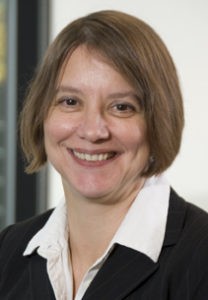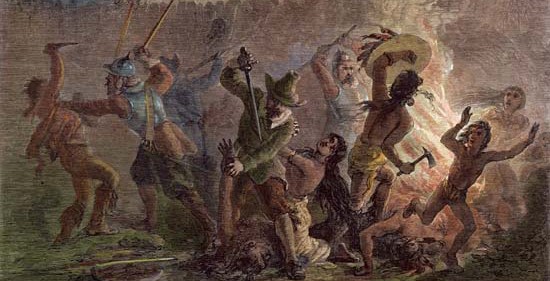My husband and I have enjoyed delving into our ancestries. At one point in the past, we visited upstate New York, where we looked at gravestones, nearly erased with acid rainfall, and at documents in the historical archives in county seats and in the small museums we found along the way.
My grandfather’s ancestors who fought in the American Revolution settled on that land by Lake Ontario — land they received for their military service. In later research, I discovered that the land was available because of increasingly demanding treaties between the settlers’ government and the Native Americans who had lived on it for centuries.

Becky Ankeny
My grandmother’s family was in the colonies in time for King Philip’s War, which the British colonists called the French and Indian War. As I worked my way back along that particular line, I discovered that one of my ancestors fought against the French and their Native American allies. His name shows up in the history books of the next century.
The other side of my family moved into what was at the time West Virginia after King Philip’s War had issued in a treaty ceding that land to the British. The Iroquois and other native folks had used it primarily as a hunting ground for centuries, and now it was available to white folks to settle and fence in.
The part of my family from New York moved further west with each generation until they arrived in Oregon prior to 1850. I discovered that lands in the Willamette Valley were open for settlers due to the drastic effect on Native Americans of disease brought by white people. The native population had been devastated. Additionally, a treaty with the U.S. Congress in 1855 required the few remaining to leave most of the valley and settle near Grand Ronde, leaving lands they had lived on for centuries available, from a settler’s perspective.
It is easy to see where this is going for me. I can point at every significant move to the advantage my family gained at the expense of Native Americans’ lives and livelihoods.
But I’ve saved the most horrible story for last.
In 1676, during King Philip’s War, a troop of Native American warriors raided a settlement and stole livestock. These warriors stayed in a separate camp from what we might term the civilians. However, in retaliation, the colonists’ militia (including my ancestor, identified by name) attacked the village of civilians — women, children, elderly folks — in the early dawn, shooting them as they ran from their lodgings, herding the rest into the river where most drowned or were shot. The estimate is that more than 200 unarmed Native Americans died that day.
“And the fact resurfaces that I am who and where I am with an ancestor who murdered Native American women and children over the theft of cattle.”
I have been sick with grief about this since reading it. I soothe myself now and again by rehearsing the migrations of peoples across the globe, migrations often accompanied with brutality and the murder of the original inhabitants. In truth, it is no excuse that human beings have commonly behaved thus. And the fact resurfaces that I am who and where I am with an ancestor who murdered Native American women and children over the theft of cattle.
I have written the town council near that site, asking them to consider renaming it so that it does not honor the white military leader of that massacre but instead remembers the people who were murdered there. I also have written the U.S. senators from the state. In additional research, I found that there are societies set up to create a memorial site to the victims of the massacre, and that did my heart some good. It also did my heart good to donate money to First Nations Development Institute, which you can look up to see the good they do. I’ll donate again; this ancestral sin still stings my heart.
I can’t go back in time and rewrite history, and nothing I can do will erase the stain of the blood my ancestors have shed and the lives they have erased. I can ask God what I can do in this present time to signify my sorrow in a way that also makes the world concretely better. I can’t prescribe for any others how to respond to their own history. However, it is worthwhile for those of us who have benefited from ancestral harm done to other people to find some concrete, positive action that aims at justice.
Becky Ankeny lives in Newberg, Ore., and is a former professor at George Fox University. She is a Quaker and previously served as general superintendent of the Northwest Yearly Meeting of Friends. Her parents were Friends missionaries in Burundi, Africa, for three decades, and she spent much of her first 15 years there. She graduated from George Fox College in 1977 and received an MBA and Ph.D. in English from the University of Oregon. Her Ph.D. work was on the fiction of George MacDonald, a Victorian preacher and writer who influenced C.S. Lewis. She taught at Westmont College from 1986 to 1988 before returning to her alma mater, George Fox, to work as a professor of English and as an administrator from 1988 to 2011.
Related articles:
It’s past time to unearth and acknowledge our role in Native American boarding schools | Analysis by Laura Ellis
Confessions of a good white guy | Opinion by Alan Bean

